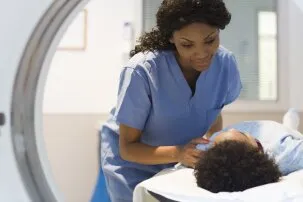An MRI technologist, also known as a magnetic resonance imaging technologist, is a highly skilled healthcare professional who operates and maintains MRI machines. These machines use strong magnetic fields and radio waves to generate detailed images of the inside of the body, helping physicians diagnose and monitor a wide range of medical conditions.
The primary responsibility of an MRI technologist is to prepare patients for the imaging procedure, ensuring their safety and comfort throughout the process. This may involve explaining the procedure to the patient, positioning them correctly on the MRI table, and administering contrast agents when necessary. MRI technologists also play a vital role in ensuring that patients understand and follow all safety protocols, such as removing metal objects before entering the MRI room.
Once the patient is prepared, the MRI technologist operates the MRI machine to capture high-quality images of the patient's internal organs, tissues, and bones. They must closely monitor the images as they are being produced, making necessary adjustments to ensure that the images are clear and accurate. Additionally, MRI technologists are responsible for documenting the imaging procedure and maintaining detailed records of the images for review by radiologists and other healthcare professionals.
Beyond their technical duties, MRI technologists also play a critical role in maintaining and calibrating MRI equipment to ensure that it operates safely and effectively. They may also be responsible for ordering and maintaining supplies, managing patient schedules, and providing support to other healthcare professionals as needed.
To become an MRI technologist, individuals typically complete a post-secondary education program in radiography or magnetic resonance imaging. Many also pursue certification through organizations such as the American Registry of Radiologic Technologists (ARRT) to demonstrate their expertise and commitment to professional standards. Overall, MRI technologists are essential members of the healthcare team, using their specialized skills to help diagnose and treat a wide range of medical conditions.

